Primary, secondary education in Northern Ireland for international students
-
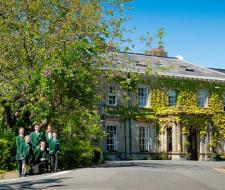 from 9135.00 £ / termApply with documents
from 9135.00 £ / termApply with documents -
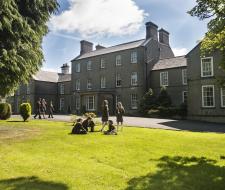 from 19050.00 £ / yearApply with documents
from 19050.00 £ / yearApply with documents -
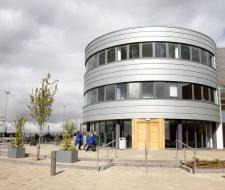 Apply with documents
Apply with documents -
 from 23245.00 £ / yearApply with documents
from 23245.00 £ / yearApply with documents -
 Apply with documents
Apply with documents -
 from 31000.00 £ / yearApply with documents
from 31000.00 £ / yearApply with documents
-
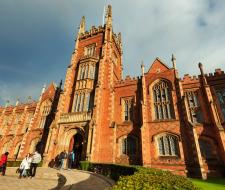 Apply with documents
Apply with documents -
 from 9135.00 £ / termApply with documents
from 9135.00 £ / termApply with documents -
 from 19050.00 £ / yearApply with documents
from 19050.00 £ / yearApply with documents -
 #61 in Best Global Universities in the United Kingdom
#61 in Best Global Universities in the United Kingdom Northern IrelandBelfastCurrently watching: 2Apply with documents
Northern IrelandBelfastCurrently watching: 2Apply with documents -
 Apply with documents
Apply with documents -
 Apply with documents
Apply with documents -
 from 23245.00 £ / yearApply with documents
from 23245.00 £ / yearApply with documents -
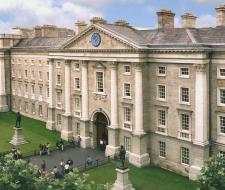
 Northern IrelandBelfastCurrently watching: 1Apply with documents
Northern IrelandBelfastCurrently watching: 1Apply with documents
Alternative destinations
Education information
Northern Ireland, part of the United Kingdom, features a unique school education system distinct from other countries in the UK. Key differences include the age at which children start school and the types of examinations conducted. The Department of Education in Northern Ireland oversees primary and secondary education, ensuring quality through regular assessments by the Education and Library Boards and the Education and Training Inspectorate (ETI).

What do parents prioritize when searching for a UK school?
Think about what suits your child best. Different schools excel in various areas – arts, drama, sports, or specific subjects. There are selective and more inclusive schools, each catering to different strengths. If you're new to the UK system, you might start with league tables and GCSE or A-level results. More knowledgeable parents should consider the school's location, size, EAL course availability, academic requirements, and extracurricular offerings.
Secondary Schools in Northern Ireland: Types and Characteristics
In Northern Ireland, secondary education is state-funded and delivered in secondary schools and grammar schools, with admission to grammar schools based on academic selection through transfer tests.
Types of schools include:
- Controlled (state) schools: Governed by School Boards of Governors.
- Maintained (Catholic) schools: Managed by a board of trustees, parents, teachers, and education representatives.
- Voluntary Grammar Schools: Controlled by Boards of Governors, receive capital grants from the education authority, and some charge minimal fees.
- Irish Medium Schools: Most subjects taught in Irish (Gaelic) language.
- Special Schools: Cater to students with special educational needs.
- Independent Schools: 16 in Northern Ireland, set their curriculum, teaching style, and admission policy, funded by tuition fees and private grants.
- Boarding Schools: 5 in the country with a rich academic history, offering both separate and co-educational learning for students up to 18 years old. Popular international programs like GCSE and A-level are offered, but the IB program is typically not available.
The Benefits of Studying in Northern Ireland
-
International reputation for academic excellence, often surpassing other parts of the UK in GCSE and A Level results.
- Impressive educational experience.
- Friendly connections with students from various countries.
- Excellent choice of schools.
- Small class sizes.
- Highly qualified teachers.
- Individual-focused educational programs.
- Economically favorable tuition fees compared to neighboring countries.
- Access to a broad range of extracurricular opportunities.
- Warm and welcoming environment for international students.
- Proximity to UNESCO World Heritage sites, historical landmarks.
- Visits to local lakes and mountains, inspiring C.S. Lewis’s world of Narnia.
- Tours of iconic filming locations like "Game of Thrones" and "Star Wars."
- Two international airports nearby.
Primary and Secondary Education in Northern Ireland
Mandatory schooling age is from 4 to 16 years, the lowest compulsory school starting age in Europe. Primary education covers ages 4-11, followed by secondary education. The academic year runs from September 1 to July 1, with five holiday periods throughout the year, including longer summer breaks than in England.
Education levels:
- Primary (compulsory): Grades 1-7 (ages 4-10).
- Secondary (compulsory): Grades 8-12 (ages 11-16).
- Post-secondary (optional): Grades 13-14 (ages 17-18).
Subjects in primary schools include Art, World Around Us, Mathematics, Language and Literacy, Religious Education, Personal Development, and Mutual Understanding. Secondary schools follow a national curriculum covering a broad range of subjects, including Music, Geography, Mathematics, Physical Education, Science, English, and Modern World Languages.
At 16, students take the GCSE exams, marking the end of compulsory education and influencing further education choices.
Post-secondary options include:
- Sixth Form,
- Grammar schools,
- Further education colleges for A-Level or vocational qualifications.
Students are assessed annually through regular tests and assignments, with formal progress levels (KS1, KS2, KS3) reported to parents at the end of Grades 4 and 7.
In secondary schools, students undertake GCSEs and choose between A-level and AS-level qualifications, graded on a letter scale (A*-E), differing from England's numerical grading system.
Admission Requirements
- Valid passport.
- Birth certificate.
- Health insurance.
- Permission to study in the country.
- Proficiency in Mathematics and English.
- School report cards from the last 2-3 years.
Learning programs-summary information
| Name | Meaning | Equivalent | Min. age | Duration, years |
Next stage | Cost |
|---|---|---|---|---|---|---|
| GCSE | General certificate of secondary education | secondary education (non-accomplished) | 14 | 1–2 | A-Levels | 15,000 USD+ |
| A-Levels | Advanced level | secondary education (accomplished) | 16 | 2 | University | 15,000 USD+ |
| BTEC | Business and Technology Education Board | secondary special education | 14 | 2–3 | University/ work | 15,000 USD+ |
| Oxbridge Preparation | Preparing for Oxford and Cambridge | secondary education (accomplished) | 17 | 1 | University | 15,000 USD+ |
| International Baccalaureate | International baccalaureate | secondary education (accomplished) | 16 | 2 | University | 18,000 USD+ |
| Foundation/ Pathway Year | Preparatory year | admission to the 1st year of university | 17 | 1 | University | 14,000 USD+ |
| NCUK | The Northern consortium | 2 year university | 17,5 | 1 | 2 year University of NCUK | 13,000 USD+ |
| Special Preparation (Medics/Math/Business) | Specialized training | - | 14 | optional | optional | 4,000 USD+ |
| Academic English | Academic English | Language school | 8 + | 6–12 months | School or University | 8,000 USD+ |
Advantages and disadvantages of English schools
| Advantages | Disadvantages |
|---|---|
| The opportunity to enter the best universities in England, USA, Canada, Switzerland, Europe, the world | Expensive |
| High quality of education and academic standards | Strong workload |
| Perfect English after graduation | The need to change the social environment; it takes time to adapt |
| Useful contacts | The difficulty of choosing the most suitable school for the child, requires a qualified specialist |
Top 21 boarding colleges in England 2024
| 1 | Cardiff Sixth Form College |
| 2 | National Mathematics and Science College |
| 3 | Abbey College Cambridge |
| 4 | d'Overbroeck's College |
| 5 | MPW London |
| 6 | CATS Cambridge |
| 7 | Kensington Park |
| 8 | DLD London |
| 9 | King's College St Michael’s |
| 10 | Bellerbys Cambridge |
| 11 | Chelsea Independent College |
| 12 | MPW Cambridge |
| 13 | Bellerbys Brighton |
| 14 | CATS London |
| 15 | St Clare's Oxford |
| 16 | Bishopstrow College |
| 17 | CATS Canterbury |
| 18 | Bellerbys London |
| 19 | Ealing Independent College |
| 20 | Cambridge Tutors College |
| 21 | Abbey Manchester |



